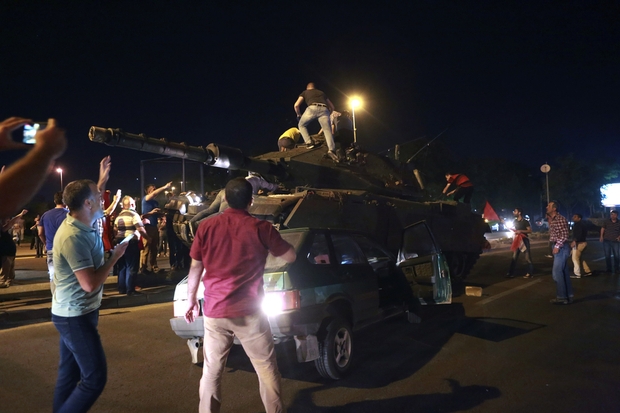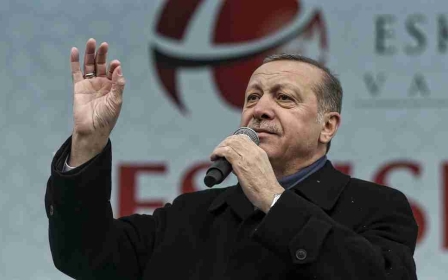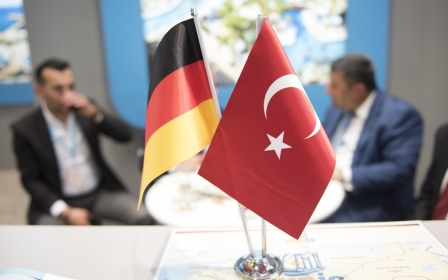Turkey parliament commission finds 'intelligence weaknesses' pre coup

A Turkish parliamentary panel has concluded that US-based cleric Fethullah Gulen was behind the failed 15 July 2016 coup in the country, while also criticising the state intelligence agency for "deficiency" before the coup happened.
A cross-party commission including the main opposition Republican People's Party (CHP) was set up after a Turkish military faction tried to overthrow President Recep Tayyip Erdogan last July.
The head of the commission Resat Petek said Friday the report "clearly and with certainty" found that the Islamic movement led by Muslim cleric Fethullah Gulen was behind the events of July 15, quoted by state-run news agency Anadolu.
Turkey refers to the movement as the "Fethullah Terrorist Organisation (FETO)".
The Turkish government accuses Gulen, who lives in self-imposed exile in the United States, of ordering the failed coup.
There was no doubt that there were intelligence weaknesses in not obtaining news of the coup attempt before
- Resat Petek, AKP politician
"All the evidence and documents collected were evaluated together... It was concluded that under the so-called leadership of Fethullah Gulen, FETO decided and conducted (the coup)," Petek said during a press conference in Ankara.
He added that Gulen had been "supported and protected...for half a century" by forces outside and inside Turkey but did not give further detail.
Gulen vehemently denies the claims and his movement insists it exists to promote Islam, charity and education.
Petek, a ruling Justice and Development Party (AKP) lawmaker, also criticised the intelligence services.
"There was no doubt that there were intelligence weaknesses in not obtaining news of the coup attempt before."
The commission's chairman called for a review, looking at the problematic and inadequate points of the current intelligence structure.
However, Petek said an unidentified soldier from the army's aviation regiment provided information to the head of the spy agency, Hakan Fidan, relating to the coup.
The lawmaker said this was "one of the the most important factors" in the timing of the bid moving forward from 16 July at 3am to 8.30pm on 15 July because of undefined actions by the spy agency and military chief of staff.
The attempted putsch left 248 people dead, according to the Turkish presidency, not including 24 coup-plotters killed on the night. More than 2,000 people were injured.
The report will now be given to speaker Ismail Kahraman for final approval in 15 days, Anadolu said.
New MEE newsletter: Jerusalem Dispatch
Sign up to get the latest insights and analysis on Israel-Palestine, alongside Turkey Unpacked and other MEE newsletters
Middle East Eye delivers independent and unrivalled coverage and analysis of the Middle East, North Africa and beyond. To learn more about republishing this content and the associated fees, please fill out this form. More about MEE can be found here.




